So Jae-Hwan, Assistant Manager at Smilegate Future Lab
Planting the Spark of Originality through Creative Learning via Games
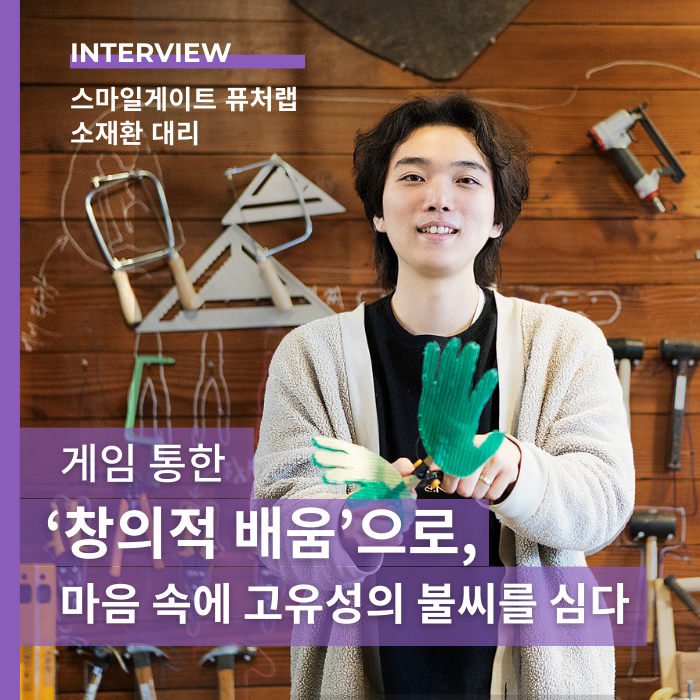
Good news recently came from Smilegate Future Lab. So Jae-Hwan, Assistant Manager in the Content Asset Team, received a commendation from the Governor of Gyeonggi Province in recognition of his contributions to advancing game culture by leading a career exploration program in gaming for local youth.
In particular, the collaborative project ‘Career Exploration into the World of Game Creation,’ presented jointly by the Future Lab and Gyeonggi Content Agency, offered youth broader opportunities to explore careers in the game industry. Over the past two years, more than 10,000 students participated. As the project manager (PM), So served as a bridge between youth and the world of gaming. We spoke with So Jae-Hwan to learn about how teenagers explored the diverse world of games and contemplated their future career paths throughout the journey.
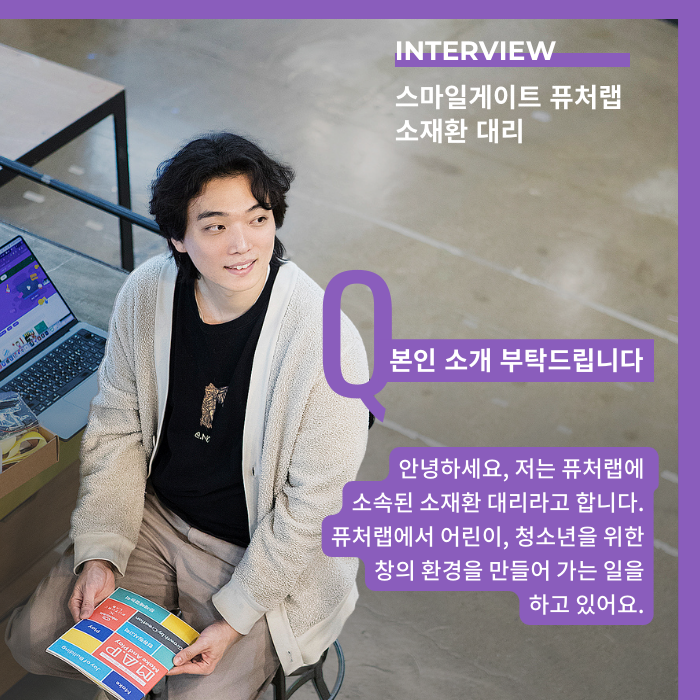
Q. Please introduce yourself.
Hello, I’m So Jae-Hwan, Assistant Manager at the Future Lab. I work on creating creative environments for children and adolescents. I plan and run various programs that help kids express their creativity. For example, we design programs where children can naturally interact with experts such as artists, scientists, and engineers. Through these processes, children are able to explore what they like, dislike, are good at, and struggle with—ultimately discovering their own sense of originality.
Q. You’ve led a two-year collaborative project ‘Career Exploration into the World of Game Creation’ with the Gyeonggi Content Agency for youth in Gyeonggi-do, and your efforts were recognized with a commendation from the Governor. How do you feel about this?
Many people supported this project. Above all, I’d like to express my gratitude to our company’s employees. The project was made possible thanks to the game-related content contributed by our employees. It was designed based on the experiences of employees working in various fields, such as game planning, art, and e-sports. Their enthusiastic participation made it possible to create meaningful career exploration content, which helped the project succeed. I’d like to take this opportunity to once again thank all the employees who contributed.
Q. What led to Future Lab's collaboration with the Gyeonggi Content Agency on this initiative? How was the project planned?
The Gyeonggi Content Agency operates a Game Culture Center to promote healthy gaming culture and correct misconceptions about games. They proposed the collaboration, believing that Future Lab’s ‘Creative Environment’ programs could contribute to this goal. They felt that giving teens a chance to experience the game development process and enjoy the e-sports culture could positively influence their perception of games. Future Lab shared this view—by providing diverse game-related experiences, they could not only broaden teens’ understanding of the gaming industry but also help improve public perception.
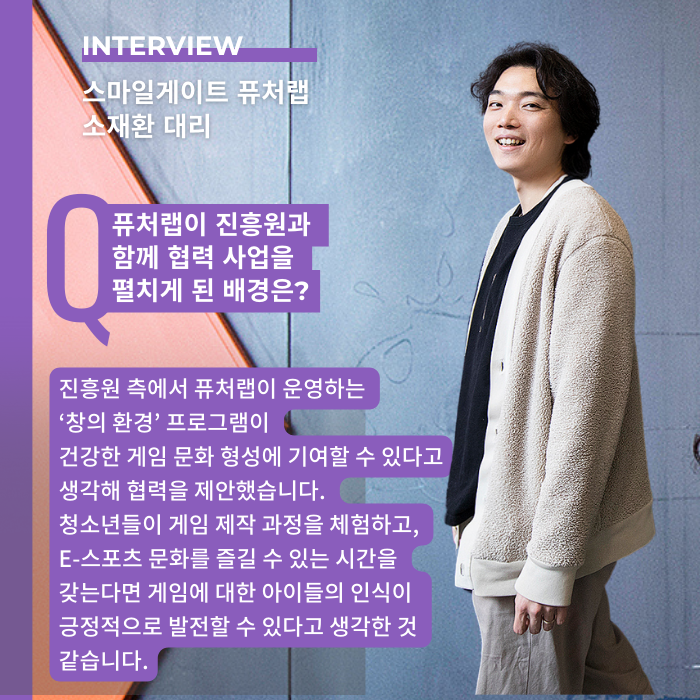
Q. How was the ‘Career Exploration into the World of Game Creation’ project carried out?
When teenagers consider game-related careers, they usually think of either becoming a programmer or a gamer. However, careers in games are incredibly diverse—game development involves planning, sound design, graphics, programming, art, and more. While students may have a vague awareness of this, few programs offer them a structured understanding. So, we designed the project to allow concrete experiences. It included two components: an online ‘exploration-type program’ where students could listen to real stories from employees and ask questions, and an offline ‘hands-on program’ at Smilegate, where they explored various career paths and even planned and prototyped their own games.
Q. Over the past two years, around 10,000 students from elementary to high school participated. What kinds of activities did they engage in?
The online exploration program was conducted through Future Lab’s YouTube channel, where participants watched game development-related videos and submitted questions, which I and other staff answered. We compiled answers with advice from employees in various fields such as planning, art, programming, and e-sports.
The offline hands-on program involved college mentors and myself guiding participants in creating game prototypes. Through this process, students were encouraged to discover their own strengths and interests. They also worked in teams, giving them experience in collaboration and harnessing each other’s talents.
Q. How did Future Lab incorporate its philosophy and expertise into this project?
At Future Lab, we uphold the philosophy that “every child possesses a unique originality,” and we continuously strive to build environments that foster children's creativity. We believe that each child is born with untapped talent and potential. Future Lab aims to support the realization of that originality and potential. From that perspective, this project embodied our philosophy very well.
We hoped participants would come to understand that game development, and many creative processes in general, are based on collaboration. Through this, we wanted them to reflect on what they enjoy or dislike, what they’re good or less confident at. We designed the program to help them better understand themselves and discover their own originality.
For example, we guided them through the prototype development process in alignment with their interests and aptitudes so they could experience firsthand how game creation is the result of diverse individuals working together.
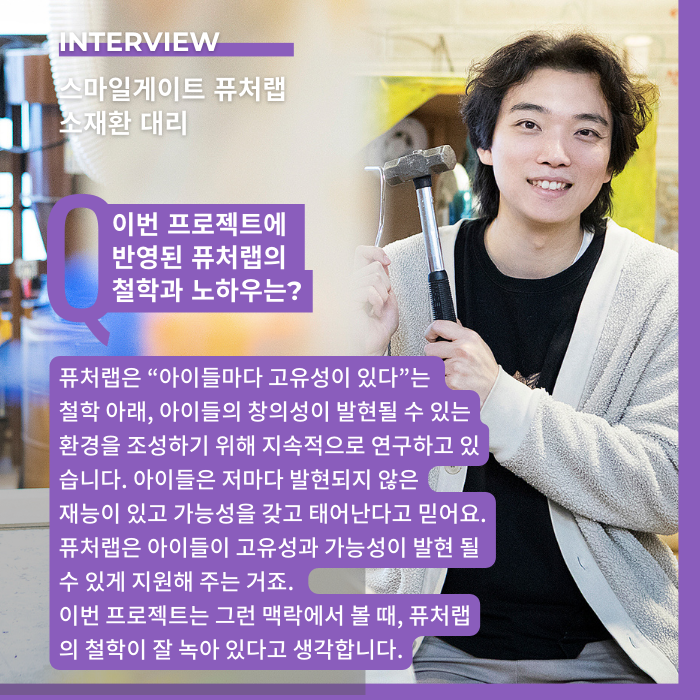
Q. You must have had many memorable moments while running the program. Could you share one that stands out the most?
One student told me they realized that “what you write about makes all the difference.” They used to find writing assignments in Korean class boring, but while working on game story writing during the project, they couldn’t stop writing (laughs). They thought they disliked writing, but discovered they actually enjoyed it when the topic was meaningful to them. Another case involved a student who had already learned coding at a private academy but found it uninteresting because it was all theoretical. Through our project, they got to apply coding directly to a game they were building, and that helped them understand how to connect their ideas with technical skills—making the learning process far more engaging and practical.
Q. Future Lab fosters 'creative learning' environments and actively supports creators. From that perspective, what outcomes did this project yield, and what significance do you see in those outcomes?
At Future Lab, when we run a project or workshop, we look at the diversity of the process that leads to outcomes. Completion levels differ from person to person, and there are various ways to evaluate quality. What matters most is the children's participation in the process and the act of creating ‘Something new’ along the way. I believe this project allowed students to experience the creative process and discover their own originality. For some, it planted the initial spark to become a creator, and for others who already had that spark, it helped ignite it into a brighter flame.
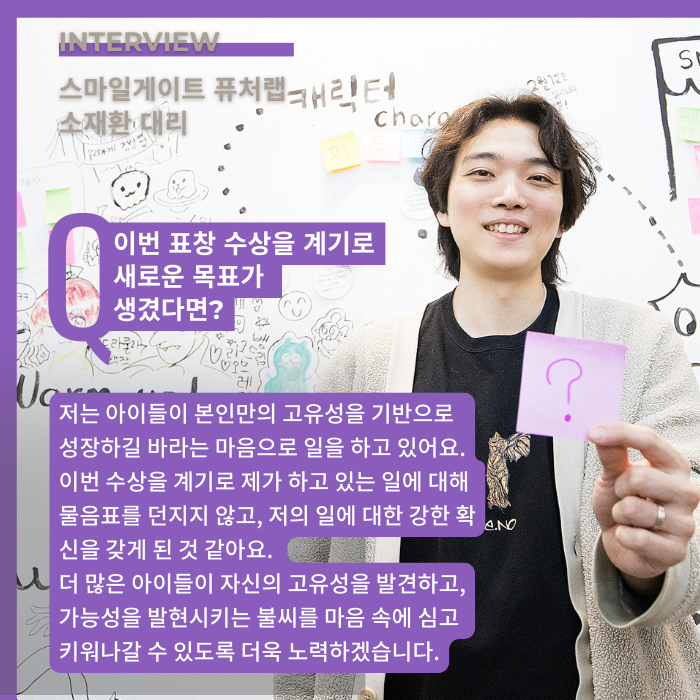
Q. Receiving this commendation must have inspired new goals for you. Could you share your aspirations going forward?
My work is rooted in the hope that children grow while embracing their own unique originality. Admittedly, there have been times when I questioned the meaning and impact of what I do. But this commendation reaffirmed my conviction. I no longer question my role—instead, I feel a renewed commitment. I will continue to work hard to help more children discover their originality and nurture the spark of their potential.
However, when quoting content in articles, please credit it as “Smilegate Newsroom.”


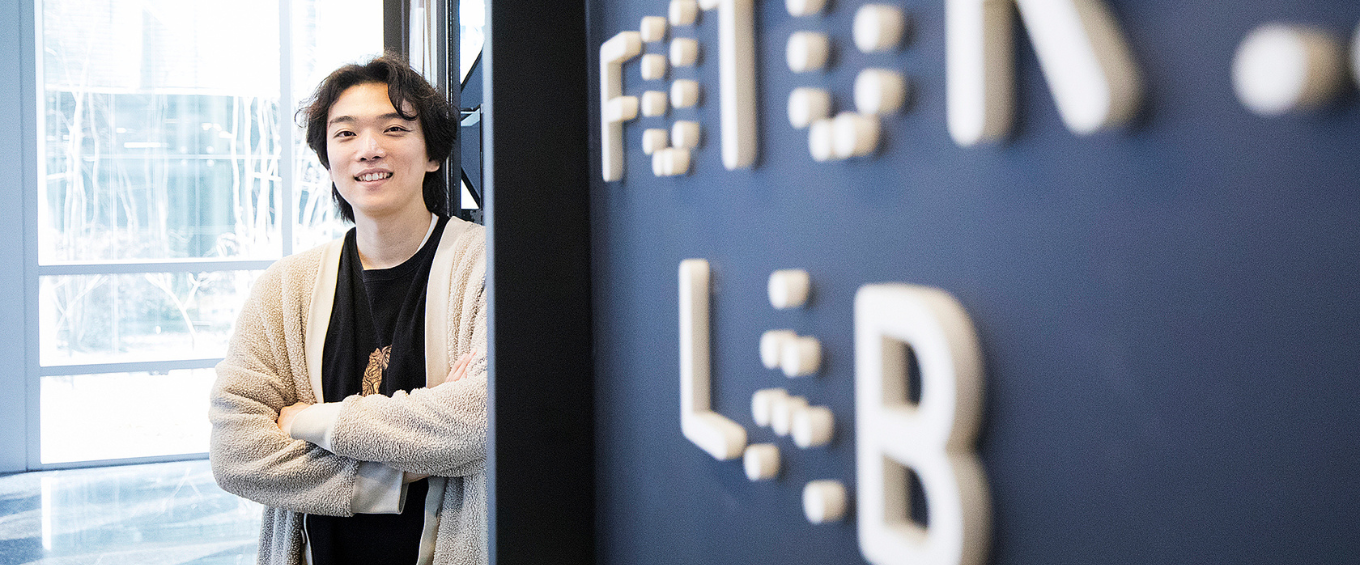
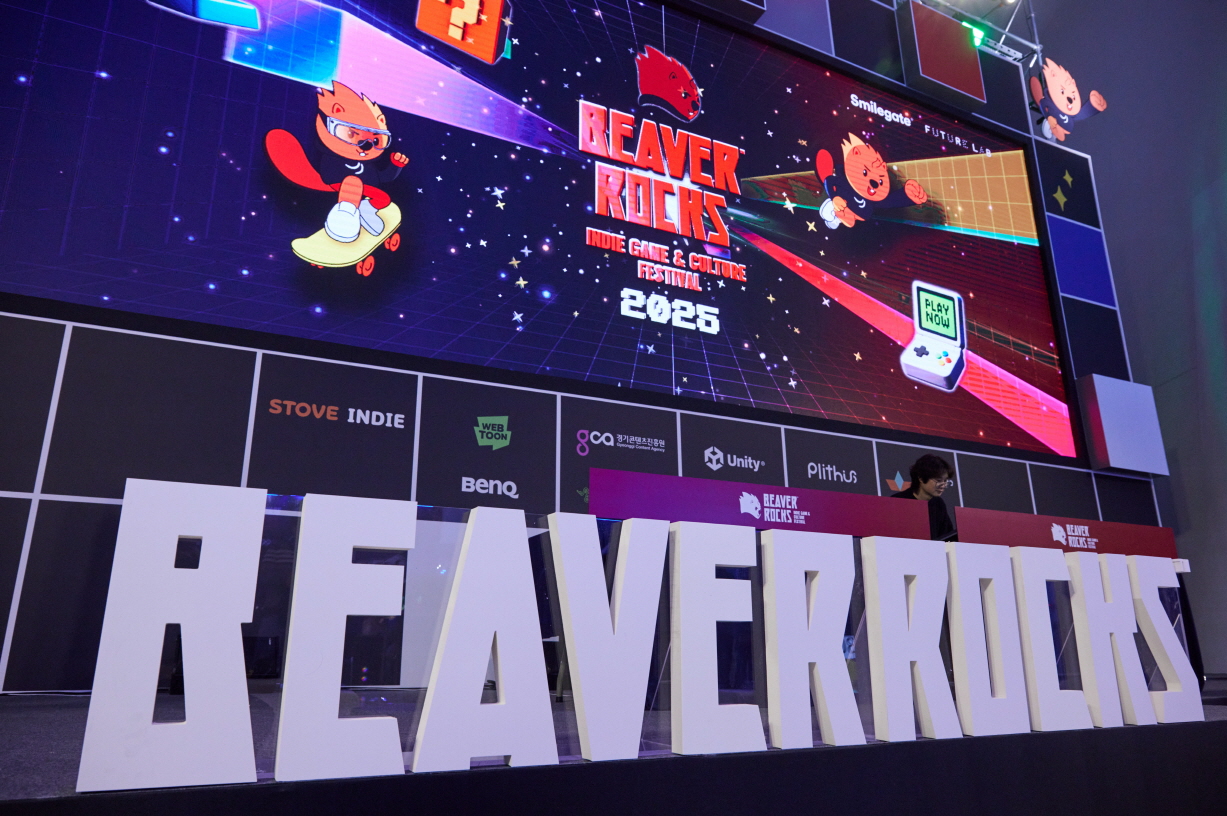
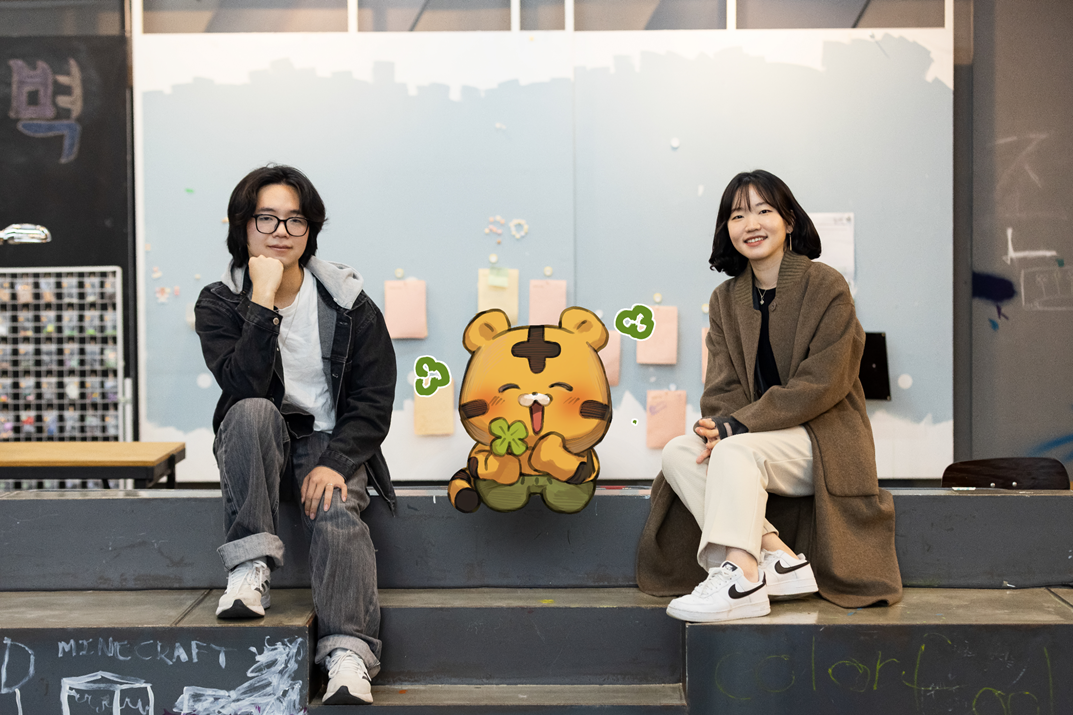
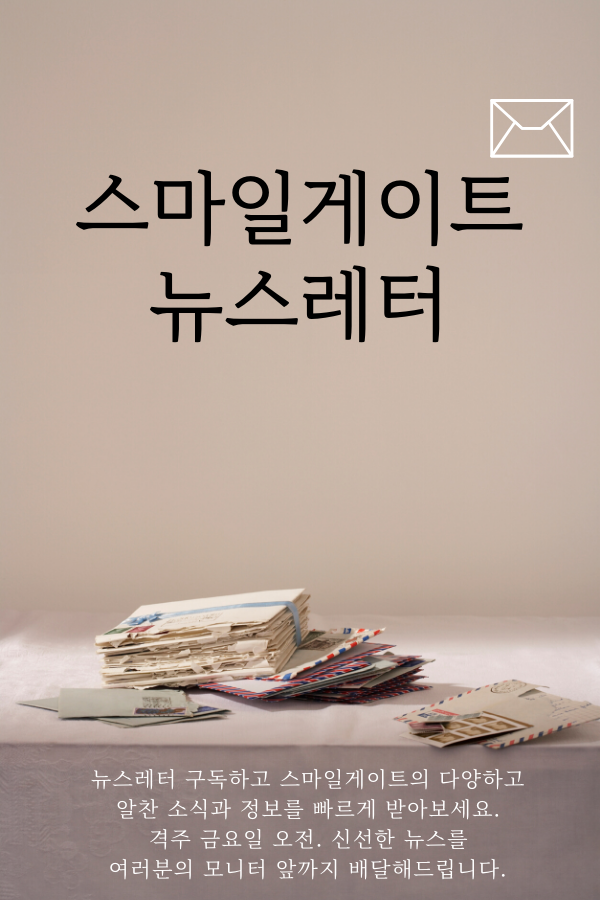
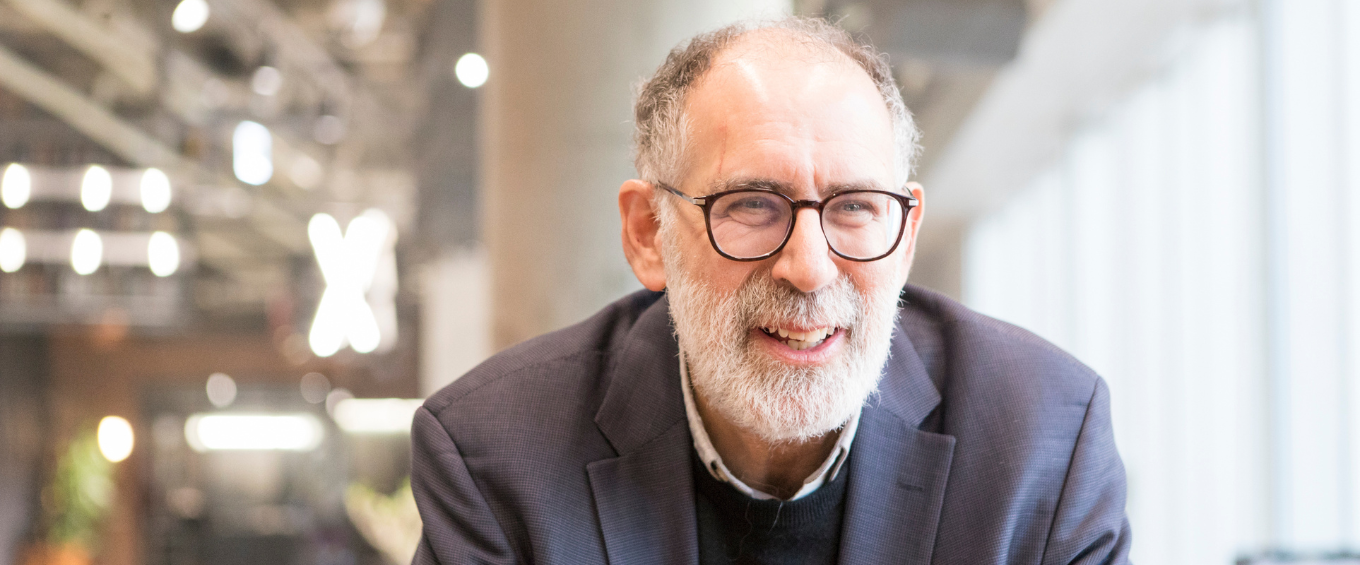
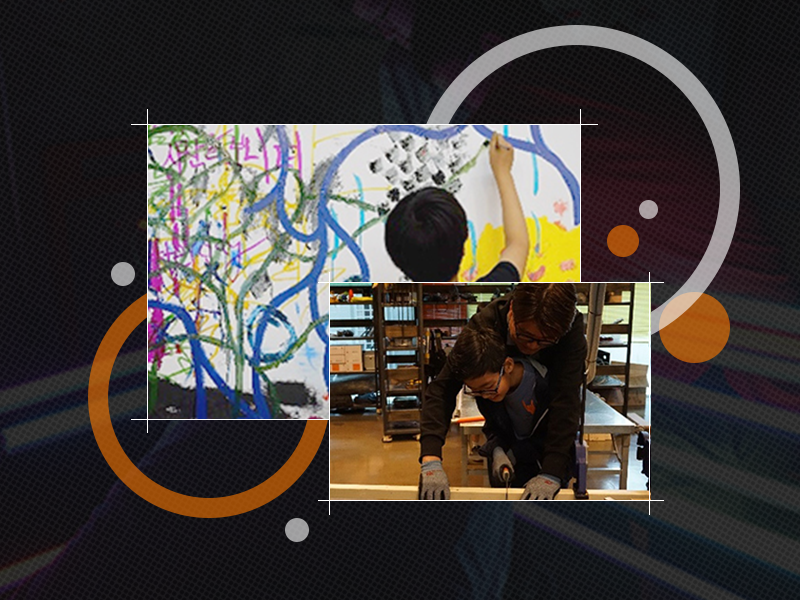
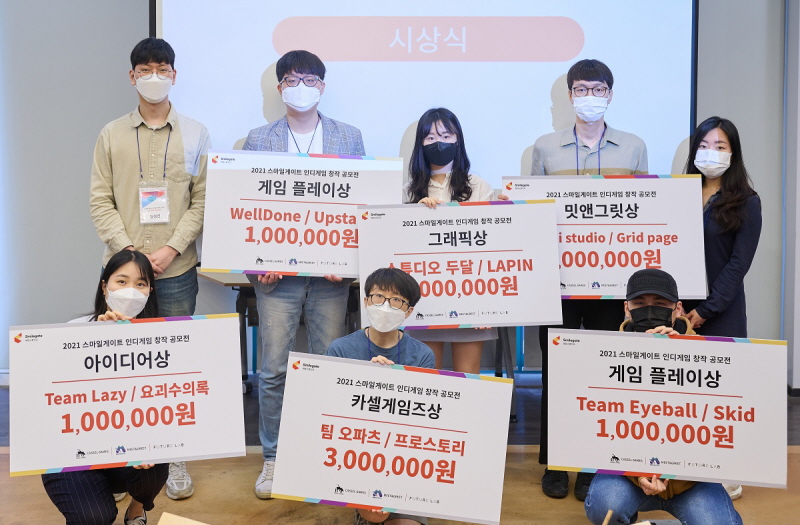
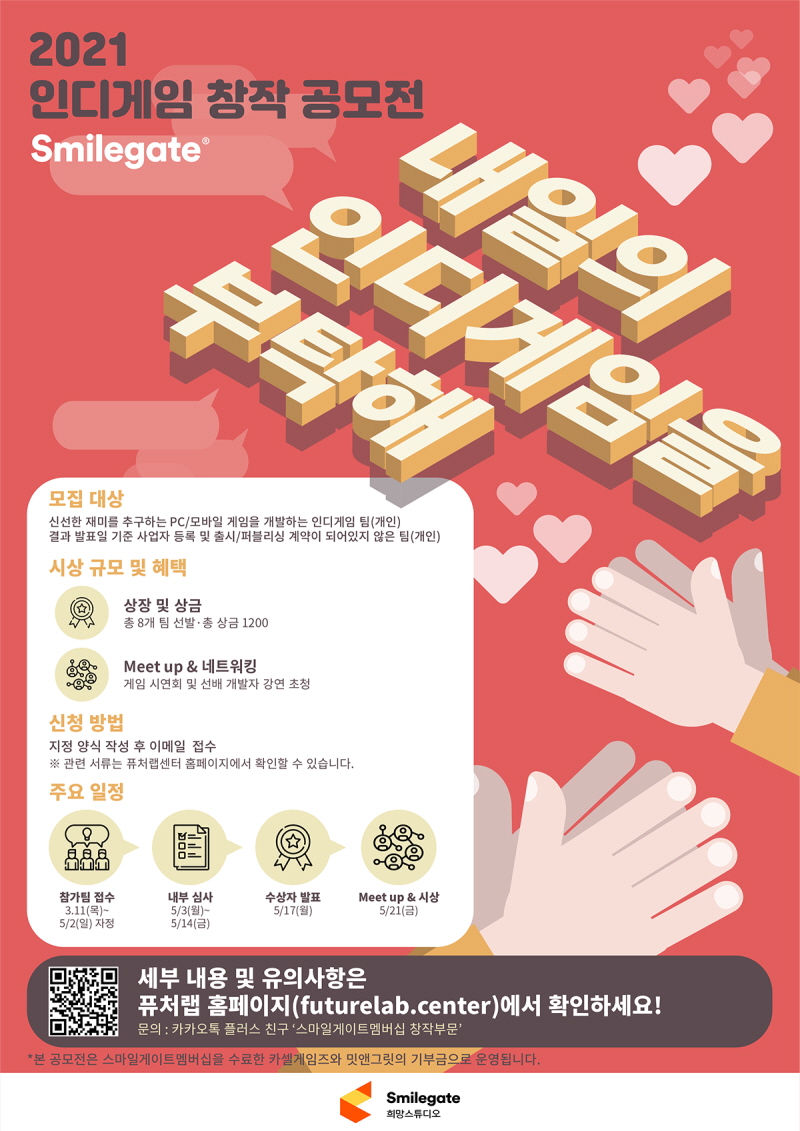

 TOP
TOP
